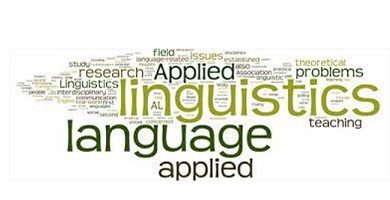What is linguistic performance with Langue vs parole Competition
Linguistic performance
The term linguistic performance was used by Noam Chomsky in 1960 to describe “the actual use of language in concrete situations.” It is used to describe both productions, sometimes called parole, and language comprehension. Performance is defined in opposition to ” competition “; the latter describes the mental knowledge that a speaker or listener has of language. Part of the motivation for the distinction between performance and competence comes from speech errors despite having a perfect understanding of the correct forms, a speaker of a language may unintentionally produce incorrect forms.
This is because interpretation occurs in real situations and is therefore subject to many non-linguistic influences. For example, distractions or memory limitations can affect lexical retrieval and lead to errors in both production and perception. Such non-linguistic factors are completely independent of the actual knowledge of the language and establish that the knowledge of the language by the speakers (their competence) is different from their actual use of the language (their performance). Lets see What is linguistic performance in this article.
Factors influencing language performance
” Language performance and its products are, in fact, complex phenomena. The nature and characteristics of a particular instance of language performance and its product (s) are, in fact, determined by a combination of factors:
Some of the factors that influence linguistic performance are:
(a) the unconscious linguistic competence or linguistic knowledge of the speaker-listener,
(b) the nature and limitations of the speaker-listener’s speech production and perception mechanisms of speech,
(c) the nature and limitations of memory, concentration, attention and other mental capacities of the speaker-listener,
(d) the social environment and state of the speaker-listener,
(e) the dialect environment of the speaker-listener ,
(f) the idiolect and individual speaking style of the speaker-listener,
(g) the factual knowledge of the speaker-listener and his vision of the world in which he lives,
(h) the state of health of the speaker-listener, his emotional state and other similar incidental circumstances.
Langue versus parole
Published in 1916, Ferdinand de Saussure’s Course in General Linguistics describes language as “a system of signs that express ideas.” de Saussure describes two components of language: langue and parole. Language consists of the structural relationships that define a language, which includes grammar, syntax, and phonology. Probation is the physical manifestation of the signs; in particular, the concrete manifestation of the language as speech or writing. While langue can be viewed strictly as a system of rules, it is not an absolute system in which parole must fully conform to langue.
Drawing an analogy with chess, de Saussure compares langue with the rules of chess that define how the game should be played and the conditional freedom of a player’s individual choices given the possible moves allowed within the system of rules.
Competition/Competence versus performance
Proposed in the 1950s by Noam Chomsky, generative grammar is an approach to analyzing language as a structural framework of the human mind. Through the formal analysis of components such as syntax, morphology, semantics, and phonology, generative grammar seeks to model the implicit linguistic knowledge with which speakers determine grammaticality. In the theory of transformational grammar, Chomsky distinguishes between two components of the production of the language: competition and performance.
Competence describes the mental knowledge of a language, the intrinsic understanding of the speaker of the relationships between sound and meaning established by linguistic rules. Performance, which is the actual observed use of language, involves more factors than phonetic-semantic understanding. Interpretation requires extralinguistic knowledge, such as awareness of the speaker, audience, and context, which crucially determines how speech is constructed and analyzed. It is also governed by principles of cognitive structures that are not considered aspects of language, such as memory, distractions, attention, and speech errors.
I-Language versus E-Language
In 1986, Chomsky proposed a distinction similar to the competence/performance distinction, considering the notion of an I-Language (internal language) which is the intrinsic linguistic knowledge within a native speaker, and E-Language (external language) which is the language linguistic observable. the output from a speaker. Chomsky argued that the I-Language should be the focus of the research and not the E-Language.
Electronic language has been used to describe the application of artificial systems, such as calculus, set theory, and natural language is seen as assets, while interpretation has been used exclusively to describe applications of natural language. Between I-Language and competence, I-Language refers to our intrinsic faculty of language, Chomsky uses competence as an informal general term, or as a term with reference to a specific competence such as “grammatical competence” or “pragmatic competence”.
